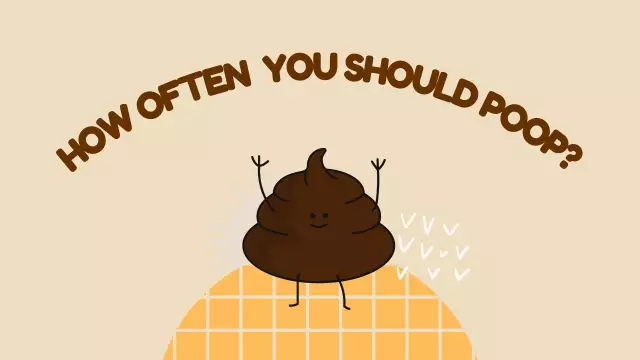- Author Curtis Blomfield blomfield@medicinehelpful.com.
- Public 2023-12-16 20:44.
- Last modified 2025-01-23 17:01.
In infancy, constipation is not uncommon. Quite often you can meet a baby who cannot go to the toilet for 3 or more days. The reasons can be very different, you will learn about them from this article.
Due to prolonged constipation, various kinds of ailments, heaviness and pain in the abdomen appear. What to do if the baby does not poop?
How does the extraction process take place? Why can't the child go to the toilet?

After the rectum is filled with feces, which remains inside for a while and dries out, it begins to stretch under the weight of the waste and push it out of the body. But if the feces are inside the intestine for too long, it becomes too dense, which makes the process unpleasant and even painful for the child. The cycle goes like this: the colon tries to push out the waste, the child begins to push. But if the muscles fail to push the feces out of the body, the baby feels pain and may even develop rectal fissures. They bleed and hurt, and the child cannot go to the toilet for even longer due to fear of discomfort.
Causes of constipation

Often a child does not poop for a long time due to malnutrition. It should be borne in mind that the foods used by the baby for food should be easily digestible and nutritious. In addition, constipation can occur in a sedentary child. In this case, it is better to feed him vegetables, fruits, grain products, and also give plenty of fluids. In addition, it is important to include fiber in your diet at least 5 times a week, and preferably every day.
It is possible that constipation is caused by a chronic illness, then you should consult a doctor for advice. You should also observe what foods the child feels bad from and exclude them from the diet. It is important to increase physical activity: run more, walk more, engage in outdoor games, etc.
If the child does not poop for 3 days (in this case, we are not talking about the crumbs of the first year of life, who are exclusively breastfed), then you should consult a doctor. A specialist may recommend laxatives, but this is not the best option, as they can be harmful to the body. To begin with, it is worth trying to adjust the diet, give the child more fluids.
Every parent should know that such interruptions in the process of coping with natural needs can also indicate serious illnesses. Look out for the following symptoms:
- baby hasn't pooped for more than one week;
- baby unable to go to the toilet on his own;
- painful cracks and redness in the areaanus;
- child complains of abdominal pain;
- deterioration of general condition;
- loose stools.
If you notice something on the list, go to the doctor (and as soon as possible, in some cases time plays a decisive role, for example, with intestinal obstruction) and tell him about your observations.

At the age of 4, the baby may simply be afraid to go to the toilet. The fact is that often during this period, children begin to be taught to use a common toilet, and they have a fear of falling into a hole (or falling into the toilet if it is not equipped with a special child seat). Maybe it looks funny, but not for a child. In this case, it is important to talk to him and help psychologically. If a child does not poop in a public place, this can also be caused by ordinary fear or a sense of embarrassment, shame. For example, in kindergarten, many children cannot go to the toilet unless their parents or caregiver are around.
Before jumping to conclusions, you need to figure out exactly why your child can't go to the toilet. And if there are reasons to see a doctor, it is better not to delay.






